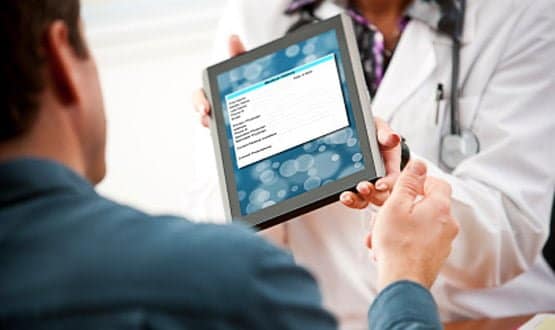Another view: Neil Paul
- 26 June 2012

I attended a regional IT meeting last week. It was billed as part of the roll out of the new NHS IT strategy, although it seemed to be more of a “take stock of where we are up to and where are we going” meeting.
This was probably a good idea, as the audience seemed very mixed in terms of providers and commissioners and clinicians and non-clinicians.
There also seemed to be a range of pay grades, which was great; although it would have been nice to have some more interactive sessions.
Local monopolies
The day started off with a talk from a commissioning support service in the North East, which is worth reporting, as I think it gives insight into how CSS’s might be thinking.
The emerging organisation seems to have joined the IT support and health informatics functions together. It seems to have assumed that, because it will provide desktop support to eight clinical commissioning groups, it will also provide the informatics.
This is probably right and it is probably a model that we’ll see all over the place. My CCG has been told we must get our services from our CSS in our first year.
At the event, we heard a lot about the CSS organisation structure and what it could deliver. But I didn’t hear much about the CSS talking to local CCGs and understanding their needs – a worry with a monopoly provider.
To be fair, the CSS speakers said good things about levelling up across the patch not down, and talked about economies of scale. But apart from some work on a shared health care record and risk profiling they didn’t really seem to have a vision of the future.
Perhaps that’s not the job of the CSS, and it is up to the CCGs to set the direction of travel; but I suspect the organisation needs to start listening more.
Demanding customers
The speakers didn’t really discuss how they might cope with CCGs that wanted to buy stuff from different providers; or even how they might go out and try and pick up other CCGs as customers. My gut feeling is they and other CSSs want to set themselves up as monopoly providers of IT in “their” area.
At lunch, I spoke to several clinicians from other CCGs. They didn’t see CSSs as natural go-to suppliers for IT and informatics services, and were already very frustrated with them.
A couple wanted to know why they couldn’t outsource their desktop support to desktop support companies; one chap wanted to know why his CSS was “playing at running servers” when there were big, national players who are experts at doing that.
Another colleague was desperate to buy an off the shelf analysis package he had seen for his practices; but was hampered by his CSS. He said it kept insisting it could develop something in house; when he had seen exactly what he wanted.
The interesting theme was that we CCG people felt the job of a CSS was to help us write our strategies and help us to deliver them by procuring and contracting services from national, expert providers. We didn’t think the CSS should be the provider.
Indeed, a number of the people I spoke to felt they had been poorly served by their local IT departments in the past. They felt that with “real world” contracts in place they could finally know what they were meant to be getting – and that they would be able to take action if they weren’t.
But the one CSS person I spoke to, briefly, felt that the reason for poor past performance was underfunding – and CCGs were kidding themselves if they thought they could get more for less from private providers.
Going to the PROMS
On a more clinical note, there was a fascinating talk on PROMS 2.0 by an inspirational consultant orthopaedic surgeon Bibhas Roy, who has developed a post-op online assessment tool.
A patient post-operatively logs into this tool and, using recognised quality of life and pain scores, tells the system how they are doing.
This obviously collects lots of interesting data about complication rates; but has the amazing knock-on effect of highlighting who needs follow-up and who doesn’t.
If you are functioning fine and in no pain, you don’t get offered an appointment. Simples – a huge saving on having to see everyone.
Why is this so revolutionary? Well, if you don’t know already the NHS is facing a funding crisis. We have to do more with less.
A key tenant is that we need to stop doing things we don’t need to do and move some of the things that we do need to do into primary care, where it is, in theory, cheaper. Yet, at the same time, we need to free up clinician time to concentrate on chronic disease management.
This idea is a brilliant way of cutting needless activity, and should free up time in the orthopaedics department for other things.
It is also easily replicable to other subjects. Indeed, it’s a little galling that a consultant urologist suggested something similar to me about two years ago, but we were unable to find funding to start the project.
Think radical
This is the type of thing that CSSs need to be coming up with; not just economies of scale but radical ways of increasing productivity.
Apparently the PROMS 2.0 site was kick started with £20,000 and it could save millions. The team behind it is running a conference in Manchester in December – might be worth going.
About the author: Dr Neil Paul is a full time partner at Sandbach GPs, a large (21,000 patient) practice in a semi rural Cheshire. He is one of five executive GPs for NHS South Cheshire CCG and has a mixed portfolio that includes IT. He was previously on the PEC of NHS Central and East Cheshire. He also writes iPhone software, runs a primary care clinical trials unit and is involved in several exciting IT projects.




